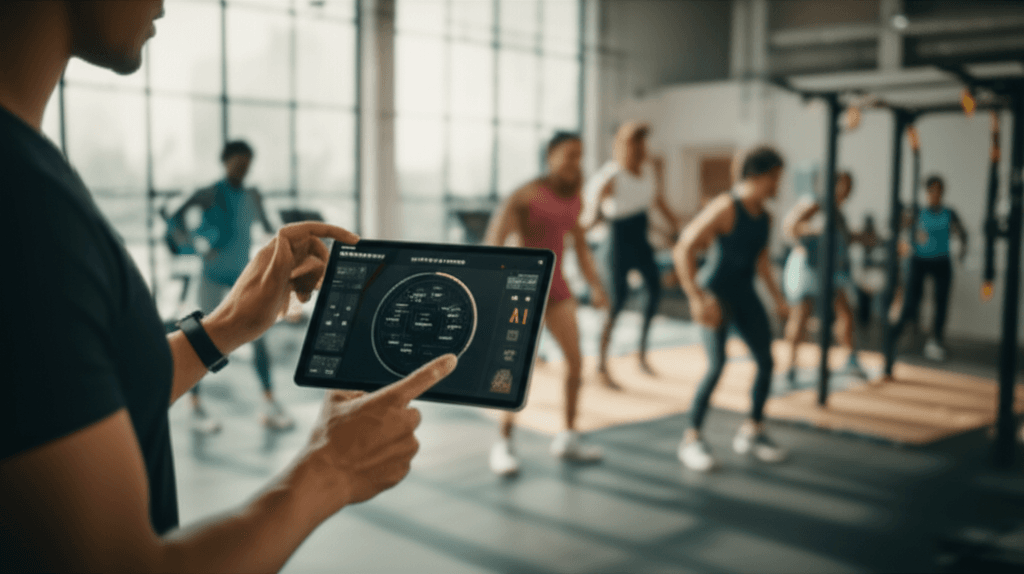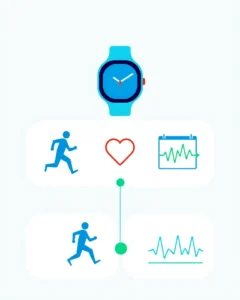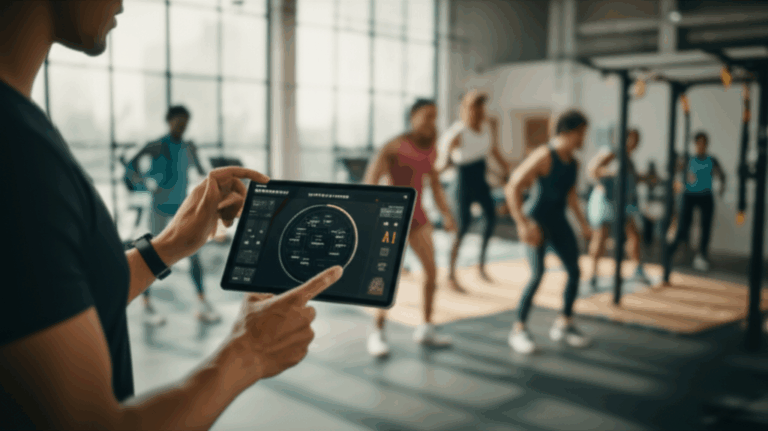CHICAGO – The burgeoning intersection of health and technology takes center stage this October as the Fitness Technology Summit 2025 convenes in Chicago, bringing together industry leaders to explore the transformative power of artificial intelligence (AI), advanced data analytics, and hyper-personalization in shaping the future of member engagement and retention. Hosted by ALTA Technology Group, the invite-only, three-day event, running from October 13–15, will unite top executives, innovators, and operators to delve into how these emerging tools are redefining the fitness landscape.
“This year’s theme is all about turning data into decisions,” stated Al Noshirvani, managing partner at ALTA Technology Group. He emphasized the growing pressure on operators to deliver personalized, impactful experiences while simultaneously running more efficient businesses.

The Ascendance of AI in Fitness
Artificial intelligence is rapidly becoming an indispensable tool within the fitness industry, moving beyond futuristic concepts to practical applications that enhance efficiency and user experience. Experts anticipate that by 2025, AI will be crucial for personal trainers to meet the demand for individualized programs and gain data-driven insights. The summit is expected to highlight several key AI applications:
AI-Driven Personalized Workouts and Coaching
AI algorithms are revolutionizing workout and nutrition planning by tailoring programs to individual needs, goals, and real-time data, moving away from one-size-fits-all approaches. These intelligent systems can analyze factors like age, weight, fitness level, and even physiological responses to create adaptive plans that adjust dynamically based on performance and progress. This customization enhances engagement and keeps users on track. AI-powered virtual trainers and chatbots offer 24/7 support, providing real-time guidance, motivation, and form correction.
Advanced Analytics and Predictive Health
Beyond basic tracking, AI integrated with wearable technology provides deep insights into recovery, stress levels, and overall well-being. By interpreting this vast amount of data, AI can offer practical advice to optimize health routines and even predict potential health issues like overtraining or dehydration before they occur. This proactive approach allows for preventive measures and smarter decision-making.
Operational Efficiency and Automation
AI is also streamlining administrative tasks for fitness businesses, from automating client engagement and communication to managing bookings and optimizing scheduling across time zones. This frees up trainers and operators to focus on client interaction, allowing for a larger client base without sacrificing quality.

Leveraging Data for Smarter Decisions
The fitness industry is undergoing a significant transformation driven by the increasing use of data collection and analysis. The summit will emphasize how turning raw data into actionable insights is paramount for success.
Comprehensive Data Collection and Analysis
Modern fitness platforms and wearable devices collect a wide array of data, including physical activity levels, sleep quality, heart rate, calories burned, and even dietary habits. This rich dataset allows for a holistic view of an individual’s health and fitness. Data analytics involves examining, cleaning, transforming, and modeling this data to uncover patterns and inform decision-making.
Tailored Programs and Real-Time Adjustments
By analyzing user data, fitness professionals and AI-powered apps can create highly customized workout plans that cater to specific needs, whether for muscle building, weight loss, or endurance. Real-time feedback, often facilitated by wearable technology and integrated gym equipment, allows for immediate adjustments to workout plans based on performance, helping to correct form and reduce injury risk.
Enhancing Client Motivation and Retention
Data analytics helps visualize progress through charts and graphs, providing tangible evidence of improvement which can be incredibly motivating for users. It also assists in setting realistic and achievable goals, further boosting motivation and accountability. For businesses, data insights can identify trends in client behavior, optimize operational efficiency, and develop new services that meet evolving client needs, ultimately leading to higher retention rates.

The Imperative of Personalization
Consumers today expect highly tailored experiences, and the fitness industry is responding by shifting from generic approaches to deeply personalized ones, driven by data and AI. This hyper-personalization is not just a trend but a significant market opportunity.
Beyond One-Size-Fits-All
Personalization in fitness means delivering workout recommendations, adaptive goal setting, and nutritional advice that align with an individual’s unique genetic profile, lifestyle, and preferences. This level of customization ensures that each fitness journey is optimized for effectiveness and enjoyment.
Integrated Experiences with Emerging Technologies
The drive for personalization is accelerating with the advent of technologies like genomics, virtual reality (VR), augmented reality (AR), machine learning, and 3D body scanning. These technologies allow for immersive fitness experiences and detailed biomechanical analysis, leading to workouts tailored precisely to individual mechanics and training results. Smart home gyms with AI-powered equipment and virtual trainers are also becoming prevalent, bringing professional coaching and real-time adjustments into the home.
The Human Element Enhanced by Tech
While technology provides the infrastructure for personalization, it also empowers human coaches to deliver more impactful experiences. By offloading administrative and analytical tasks to AI, personal trainers can focus more on the human connection, motivation, and nuanced guidance that truly differentiate a fitness journey. This blend of high-tech and high-touch is the future of personalized fitness.
The Fitness Technology Summit 2025 aims to provide a platform for sharing actionable strategies that will enable fitness businesses to harness these powerful trends, fostering a future where fitness is more efficient, personalized, and accessible for everyone.







